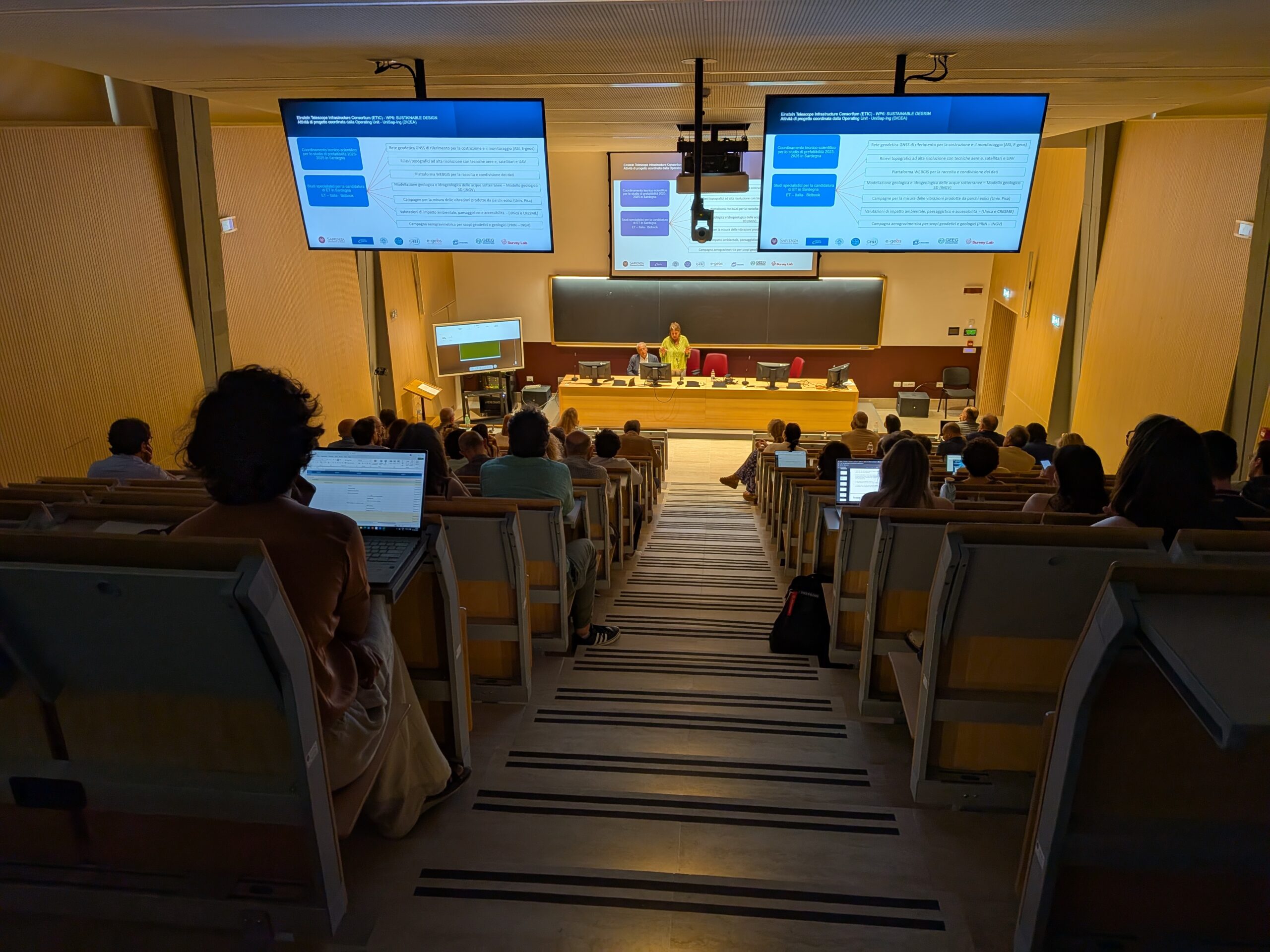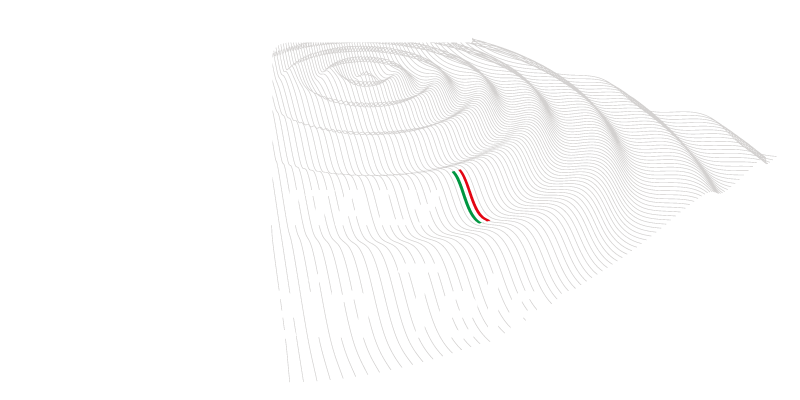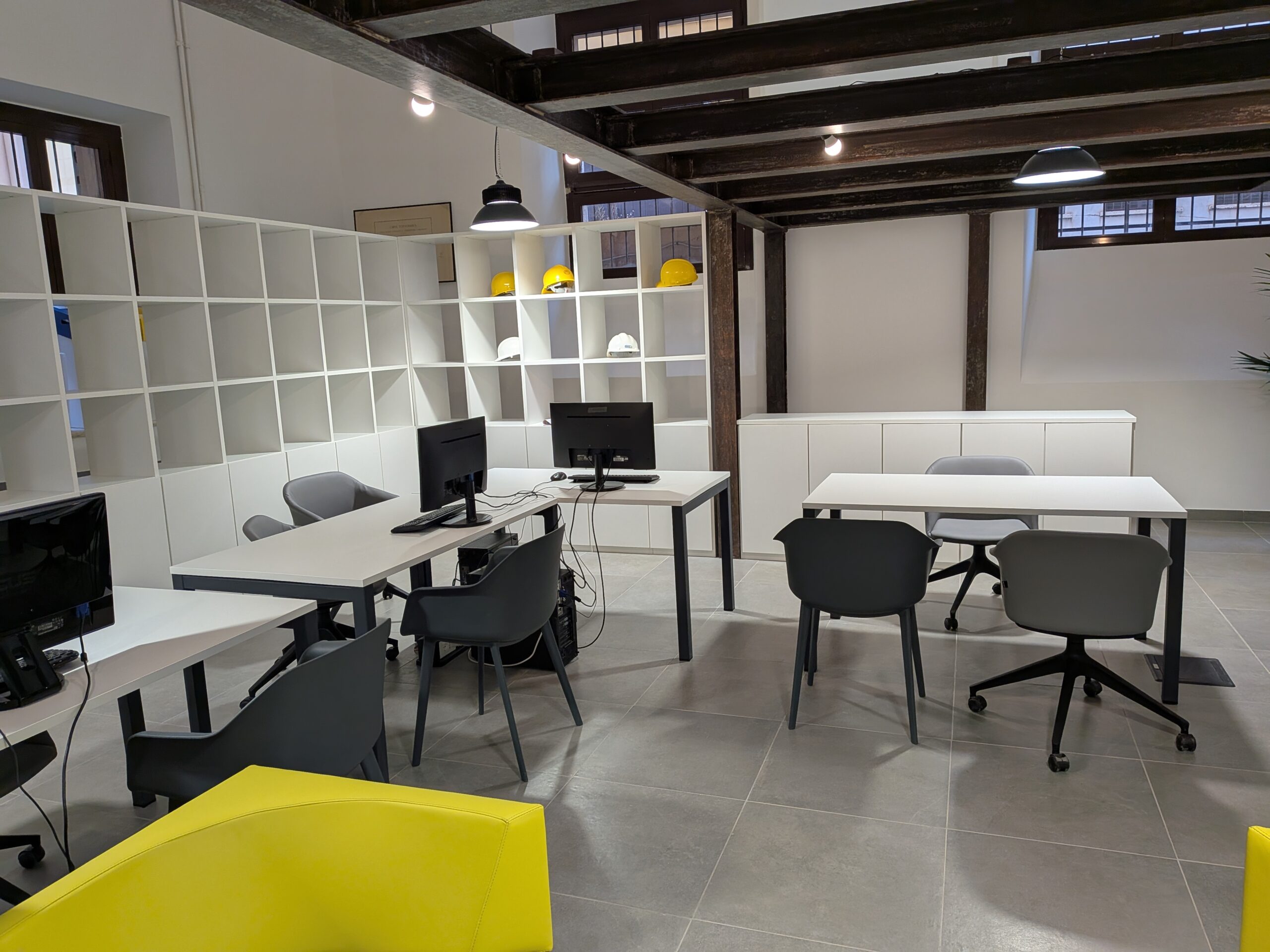The ET-3G Lab, a laboratory dedicated to advanced research in the fields of geomatics, geotechnics, and hydrogeology for the design of the future Einstein Telescope (ET) gravitational wave observatory, was inaugurated yesterday in Rome at the Faculty of Engineering of Sapienza University of Rome.
The establishment of the laboratory is one of the goals of the ETIC project, funded by the Ministry of University and Research (MUR) under Mission 4 of the National Recovery and Resilience Plan (NRRP), led by the National Institute for Nuclear Physics (INFN). Specifically, ETIC supports Italy’s candidacy to host the ET in Sardinia, in the area of the former Sos Enattos mine in the Nuoro region, through the characterization of the candidate site and the creation of a network of cutting-edge research laboratories across Italy.
The inauguration event opened with institutional greetings from Maria Sabrina Sarto, Vice-Rector for Research at Sapienza; Carlo Massimo Casciola, Principal of the Faculty of Civil and Industrial Engineering; Francesco Napolitano, Director of the Department of Civil, Constructional and Environmental Engineering (DICEA); and Monique Bossi (INFN), infrastructure manager of the ETIC project.
Following the opening remarks, Michele Punturo (INFN), coordinator of the international Einstein Telescope collaboration, presented the ET project. Presentations on the laboratory’s objectives and ongoing research were given by Maria Marsella (Sapienza), Maria Laura Rossi (Sapienza), and Wissam Wahbeh (University of Applied Sciences and Arts Northwestern Switzerland). After a tour of the lab and the traditional ribbon-cutting ceremony, the evening concluded with the show “The maps of the cosmos – Stories that changed the universe”, organized by the European Gravitational Observatory (EGO) in collaboration with INFN.

A snapshot from the ET-3G Lab inauguration event.
«The inauguration of this and the other ETIC labs, which is underway at this time, is an important occasion to celebrate the work done throughout the project, rewarding the commitment of the many people involved and enhancing the synergy between INFN, Italian universities and the research centers that are part of ETIC», highlights Monique Bossi, the project’s infrastructure manager. «In particular, the work of the ET-3G Lab, coordinated by the research group of the Sapienza University’s DICEA department, is very valuable in the context of one of the main objectives of the ETIC project, namely the pre-feasibility study of the Sos Enattos candidate site».
«ET-3G Lab, in which the DICEA Department of Sapienza University of Rome also participates under the coordination of INFN, focuses on advanced multidisciplinary studies for the future Einstein Telescope research infrastructure. Italy has identified Sardinia as the ideal location for the Einstein Telescope and has proposed it as a host for this innovative scientific infrastructure, which would place the country at the center of international research in this field», emphasizes Maria Marsella, full professor of geomatics at DICEA, head of the ET-3G Lab, and deeply involved in the Einstein Telescope project both nationally and internationally. «The laboratory, which includes 24 workstations and spans an area of 180 square meters, is designed to foster interdisciplinary collaborations. It aims to stimulate synergies among various areas of civil, environmental, and industrial engineering, promoting scientific research and the development of innovative solutions. Among its main activities are 3D modeling for infrastructure and environmental simulation, and the development of innovative and multidisciplinary design approaches to address the most complex challenges of modern engineering».

